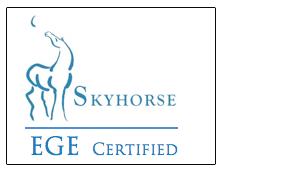Most of the women in the middle and upper management level are very well trained managers. They often have an excellent education, maybe a master’s degree of even a PHD. They usually have all the technical skills needed for their position, but are they really well prepared for upcoming leadership challenges?
I question the skills of many managers in leading positions. Most managers show a lack of so called soft skills – skills that are not related to anything you can learn from a book. I do not like the term of “soft skills”. Instead I prefer to talk about emotional skills, i.e. the essential skills for leading successfully. The concepts about such skills were developed by Daniel Goleman in the 1990s. He was basically the founder of the term “emotional intelligence” and many others followed his path. In the meantime, there is a great volume of books on this topic, and more and more companies understand the importance of emotional skills for their managers.

The Power of Emotional Intelligence
Having the best education does not mean you are going to be a successful leader. There are many managers with excellent education living a shallow existence. They simply do not have the skills needed to lead a team successfully, let alone lead a company to economic success. Companies such as American Express have used the Emotional Intelligence Assessment developed by MHS (Mulit Health Systems) to learn about the emotional strengths and weaknesses of their managers and then train them accordingly. An employee who has the skills needed for a certain task will not only be happier and feel more accomplished, he or she will also be more successful and generate better results for the company. On top of that, the company also saves money because it is very costly to replace employees or live with their incompetence over the long term. Therefore, there is increasing awareness in the corporate world about the importance of emotional intelligence (also called “EQ”).
What does Emotional Intelligence mean? It surely does not mean
- merely being nice, or
- letting it all hang out, and
- something that only develops during childhood.
These are misconceptions and have nothing to do with the real meaning. Emotional Intelligence involves a collection of skills, learned capabilities that contribute to effective performance at work, outstanding leadership and deeply satisfying relationships in life. This collection of skills is:
- Sense what you want and need.
- Recognize what others want and need.
- Dovetail your wants/needs with others.
- Stay calm under pressure.
- Act so others like to be around you.
As simple as it sounds, it is astonishing how often people are missing these skills. They must be learned, and the good news is that they can be learned at any time. It is never too late to grow as a person. Yes, it takes time and effort, but the results can be life-changing.
Women versus Men
Women often think that they are the “Queens of EQ” and that they are emotionally smarter than men. Sorry, ladies, but this is not necessarily true. According to MHS, men and women tend to have shared, gender-specific profiles of strong and weak points.
Women are more aware of their emotions, show more empathy, and are more adept interpersonally.
Men are more self-confident and optimistic, adapt more easily and handle stress better.
With this reality in mind, women in leading positions must understand that they need to build their emotional skills and use their strengths instead of whining about their weaknesses. This also involves building on your feminine foundations to be a woman and act like one! Don’t hide your emotional strengths on the fear that they are inadequate and not businesslike. Instead begin to build on these strengths and turn your emotional skills into your strategy for success.
If you want to dig deeper into this topic, I recommend the following books:
Daniel Golemen, Emotional Intelligence
Daniel Goleman, Primal Leadership
Daniel H. Pink, A Whole New Mind
I would also like to invite you to take the EQi online assessment developed by MHS. I am certified to do this assessment and can lead you through the process. For further information, please contact me.
Permission to Reprint: You may reprint any items from “Use the Strengths of your Soft Skills” in your print or electronic newsletter. But please include the following paragraph:
Reprinted from “Hertha Wolff-Arend | Be a Woman and Act Like One” a blog written by Hertha Wolff-Arend. Subscribe at http://beawomanandactlikeone.com/ and receive Blog updates by email.
If you like these tips, please pass them on to your friends, clients and colleagues.
Become a fan and follow me on Facebook!














